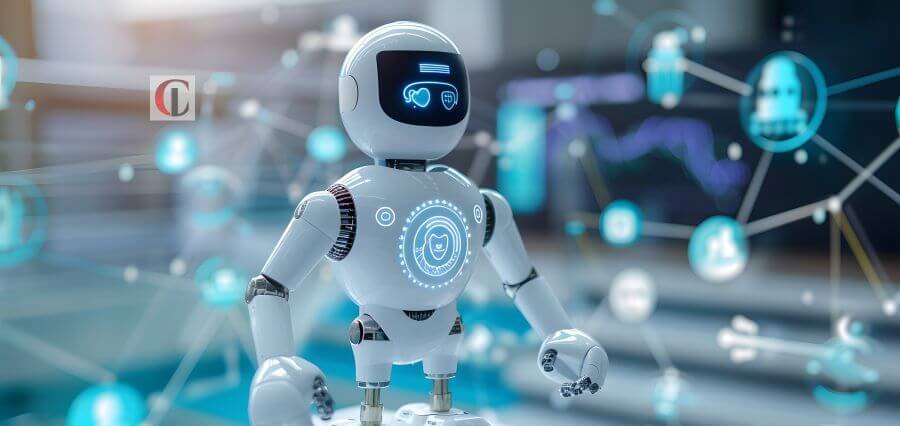TechOutLook
Artificial Intelligence will revolutionize the health industry by innovations that would bring efficiency in methodologies of patient care, diagnostics, and treatment. AI applications in health care introduce unprecedented opportunities for overcoming these challenges, such as rising demand for personalized medicine, streamlined operational tools, and improved outcomes. Revolutionizing Diagnostics
AI is changing the face of how doctors make diagnoses. Using machine learning algorithms, AI can sift through huge amounts of data and spot patterns or abnormalities that might otherwise evade the naked eye. For example, AI-driven imaging solutions in radiology have greatly improved the accuracy of detection for diseases such as cancers, cardiovascular diseases, and neurological disorders. It even speeds up the process and minimizes the chance of human error in order to come up with less error-prone results.
The very valuable contribution AI does for genomic medicine. The predispositions toward hereditary diseases will be recognized based on the genetic information by the algorithms in the AI and the earlier intervention with a tailored treatment program will be initiated.
One gigantic step forward to predictive health care.
Improvements in Patient Care
Applications of AI range from diagnostics to applications that improve patient care. Virtual health assistants based on natural language processing leads to effective treatment for patients with chronic ailments, reminds them of scheduled medications, and gives support about healing post the surgical period. Realtime personalized advisory enhances a patient-centered process.
The introduction of AI will mean that the remote monitoring devices will track the vital signs of a patient to allow proactive intervention. For example, some wearable devices detect abnormal heart rhythms or blood glucose levels and minimize the dangers of severe complications.
Optimizing Operations
The institutions have used AI in their hospitals to try to make them effective. Predictive analytics assist the management of flow, scheduling, and resources. They, therefore, saved time and made time for enough patients’ engagements through effective service delivery. Chatbots powered by AI power administrative and appointment paperless systems where providers can find adequate time for patients.
It also accelerates the drug development process by shortening the research and discovery process. Machine learning models can identify potential compounds, predict their efficacy, and optimize clinical trial designs. This ability shortens the time-to-market for new treatments and decreases development costs.
There are a lot of ethical issues that have to be taken care of once AI enters the field of healthcare. For instance, issues such as patient data privacy, algorithmic bias, and accountability have to be attended to for responsible usage of technology. A transparent algorithm and rigid applications of data protection laws are important steps toward entrusting AI-driven solutions in healthcare.
AI also poses challenges in terms of accessibility. The digital divide needs to be bridged, and there needs to be equal access to AI-based healthcare tools to avoid disparities in health outcomes. Policymakers and healthcare organizations need to collaborate in the creation of frameworks that ensure inclusivity.
The Future
With AI accelerating its pace, the scope within the health care sector will automatically increase. Federated learning is one such trend coming with this, which is a facility in which data can be securely shared across institutions. This will unlock ways for collaborative research while maintaining the confidentiality of the patients intact. In the times to come, this integration of AI with wearable technology and IoMT can revolutionize preventive healthcare as well as remote patient monitoring.
It’s without a doubt that the integration of AI into healthcare systems involves many obstacles. The reluctance towards change, substantial costs in terms of implementation, and workforce skill upscaling prove to be overwhelming. The importance of this sector, however, makes AI necessary for upgrading and enhancing health-care systems in developed and developing regions.
Conclusion
It marks a paradigm shift in the delivery and management of care, integrating AI into healthcare solutions. From diagnostics to patient care, operational efficiency, and every detail on the face of this industry, AI is changing the face of everything. It is hopeful that this would help in developing an ecosystem: efficient, fair, and more patient-centered, because ethical concerns, accessibility concerns, and innovations are being met and encouraged, respectively.
With advancing technology, embracing AI will not only make the quality of care better but also redefine the future of medicine.

